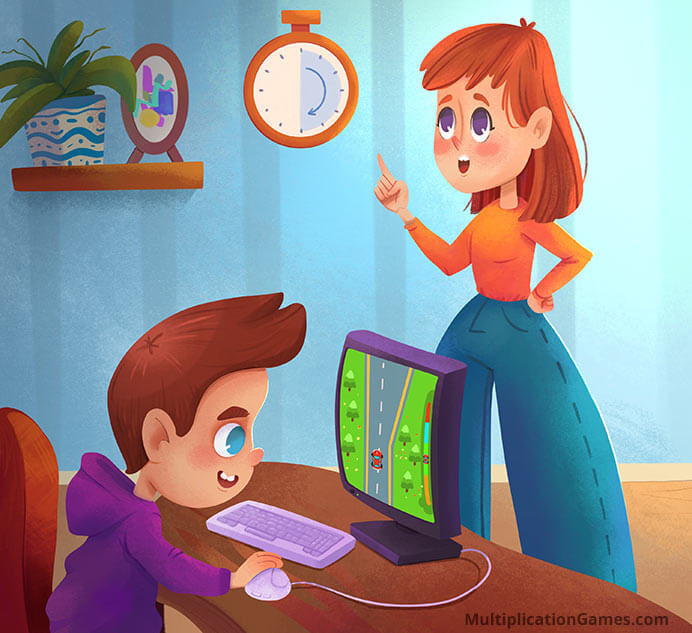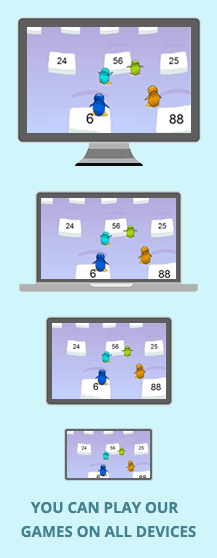Managing Screen Time For Kids: 8 Tips to Make Time Online Positive
By Megan - 01/21/2023
As technology advances, screen time has become an increasingly important topic for parents and caregivers. With children spending more and more time online, it's important to understand how to make this time positive and productive.
In this article, we'll explore the ways in which parents and caregivers can manage screen time for kids to ensure they are getting the most out of their time online. From setting boundaries and establishing guidelines to finding educational and engaging content, we'll look at the steps that can be taken to make screen time enriching instead of depleting. Keep reading to learn everything you need to know!
1. Establish Consistent Guidelines
Establishing clear and consistent guidelines for screen time usage is crucial in ensuring that kids are using screens in a positive and productive way. This includes setting specific times for when screens should be turned off, such as during homework time, bedtime, or during family meals.

By setting these guidelines, kids will learn to manage their screen time effectively. It's also important to be consistent in enforcing these guidelines to ensure that kids are able to get into a reliable routine. For example, if screens are to be turned off at 8 pm every night, make sure to consistently enforce this rule. This will help kids to understand the importance of these guidelines and develop healthy habits around screen time.
2. Balance Screen Time With Other Activities
Encouraging a balance of screen time and other activities is crucial in ensuring that kids are getting the most out of their time online. While screens can be a great way to learn, be entertained, and stay connected with others, it's important to make sure that kids are also engaging in other activities that are beneficial to their physical, social, and emotional development.
Playing outside, for example, can help kids to develop gross motor skills, improve their physical fitness, and get exposure to nature and fresh air. Reading is also a great way to improve literacy skills, expand vocabulary, and promote imagination. Spending time with family and friends can help kids to develop social skills, boost self-esteem, and strengthen relationships. To encourage a balance of screen time and other activities, parents and caregivers can plan other activities during the day or week for kids to look forward to.
3. Set Parental Controls
Setting up parental controls on devices is an important step in managing kids' screen time and ensuring that they have access to appropriate content. These controls can include limiting access to certain websites, apps, and games and setting time limits on usage.
By setting these controls, parents and caregivers can help to protect kids from potentially harmful content while also giving them the freedom to explore the online world safely. Many devices and operating systems have built-in parental controls that can be easily set up and customized to your preferences. You can also use third-party apps or software to manage and monitor screen time and content.
4. Encourage Kids to Use Technology For Education
Encouraging kids to use screens for educational purposes is a great way to make the most of their time online. Many educational apps, websites, and games can help kids learn a new language, practice math and reading skills, and explore different subjects. Consider letting your child play multiplication games online instead of traditional video games. They will brush up on their learned skills while enjoying the stimulation of a virtual environment.
Coding and programming can also be great ways for kids to learn how to think logically and creatively and to develop skills that are in high demand in the job market. By encouraging kids to use screens for educational purposes, parents and caregivers can help to ensure that their time online is productive and beneficial.
5. Create a Screen-Free Zone in Your House
Creating a designated screen-free zone in your home is a great way to encourage face-to-face interaction and promote healthy family relationships. This can be a place where screens are not allowed, such as the dinner table or bedrooms. Consider making this a location where family members can come together to talk, eat, or play games.
By creating this type of environment, parents can help to promote healthy communication and bonding. A designated screen-free zone also helps kids establish boundaries while recognizing the joys of life away from technology.
6. Use Apps to Monitor Screen Time
Using apps and tools to monitor and track kids' screen time usage can be a helpful way to keep tabs on how much time they spend online. This allows you to hold your child accountable and make adjustments as needed. Many smartphones and tablets have built-in screen time tracking tools, and there are also third-party apps and software that can be used to monitor usage across multiple devices.
By tracking kids' screen time usage, parents can identify patterns and habits, and make changes to ensure that kids are using screens in a healthy and productive way. You can also set competitions and reward the family member with the lowest screentime with a surprise at the end of the week.
7. Model Positive Screen Time Habits
Model healthy screen time habits yourself by being aware of your own usage and trying to set a good example for your kids. Children tend to emulate the behaviors of their parents, so it's important to lead by example. This means setting your own time limits for screen time, not using screens during meals or family time, and engaging in other activities such as reading, physical exercise, and spending time with friends and family.
8. Reward Good Screen Time Habits
Rewarding positive screen time habits is a great way to encourage kids to use screens in a beneficial way. This can include using screens for educational purposes, engaging in face-to-face interactions after screen time, or limiting their screen time to a certain amount of time. Rewards can be small, such as additional screen time on Friday night or a date to get ice cream. It's important to recognize and encourage positive habits, so kids know their efforts are valued and appreciated.
The Takeaway: Balance Is Key
In conclusion, managing screen time for children can be challenging, but it is important for their physical and mental well-being. By setting clear boundaries, monitoring their online activity, and finding ways to make screen time positive and educational, parents can help their kids develop healthy habits and use technology in a responsible way. With the right approach, screen time can be a valuable tool for learning and connecting with others, rather than a source of distraction.






